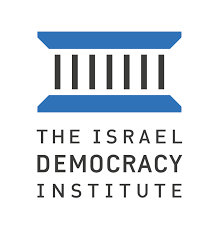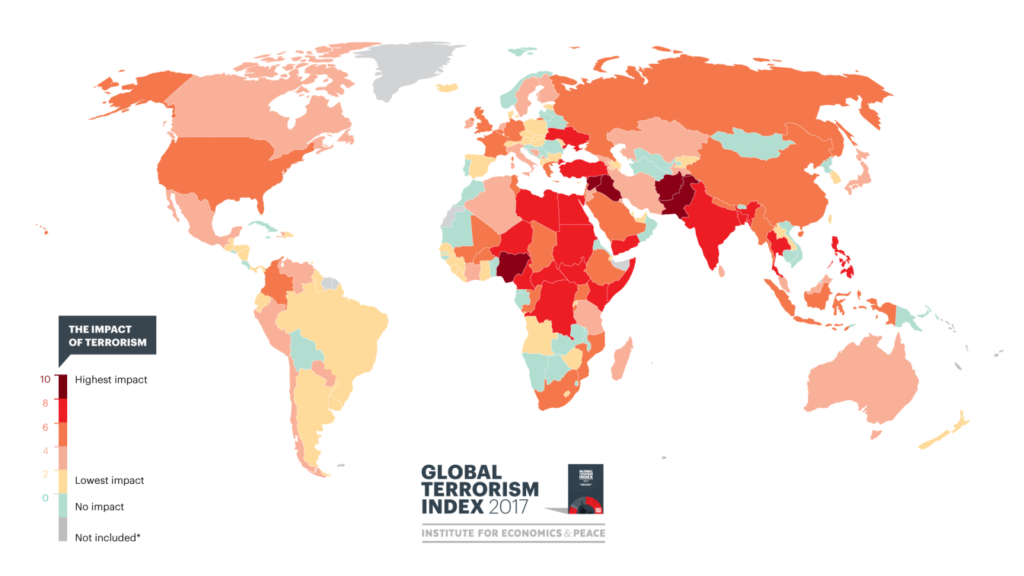Mutual democratic values underpin U.S. solidarity with Israel in the wake of the weekend’s atrocities by Hamas, according to White House national security spokesman John Kirby.
“As a vibrant democracy, Israel shares many of our values and interests and certainly one than those values is a respect for life,” he told CNN. “And we are always better together when we are observing that respect for life and for the laws of war as well.”
Taiwan’s Representative to the EU and Belgium Alexander Tah-ray Yui described Israel as “another democracy under threat”. He told an audience of EU and Belgian policymakers he wanted to express “our condemnation in the strongest terms against the terrorist acts perpetrated by Hamas against the State of Israel and its people, and our deepest condolences to the Israeli families who have lost dear ones during these senseless attacks.”
He added: “It is during these moments when you realize who really are your friends and we stand beside Israel during these difficult times.”
 Hamas’s advantage now is the ability to scatter and hide within the protective shield of Gaza’s civilian population, argues Bruce Hoffman, the Shelby Cullom and Kathryn W. Davis senior fellow for counterterrorism & homeland security at the Council on Foreign Relations. Also, as an authoritarian regime that has not held elections in Gaza for fifteen years, it can coerce the population into cooperation and does not have to worry about public opinion.
Hamas’s advantage now is the ability to scatter and hide within the protective shield of Gaza’s civilian population, argues Bruce Hoffman, the Shelby Cullom and Kathryn W. Davis senior fellow for counterterrorism & homeland security at the Council on Foreign Relations. Also, as an authoritarian regime that has not held elections in Gaza for fifteen years, it can coerce the population into cooperation and does not have to worry about public opinion.
“Powerful, centrifugal forces have been unleashed that have rewritten the rules for the entire region,” Hoffman told The New Yorker’s Robin Wright. Unlike confrontations in previous decades which followed a pattern of death, destruction, and negotiated ceasefires, this war is “completely unpredictable.”
A former contributor to the National Endowment for Democracy’s Penn Kemble Forum, Hoffman joins War On The Rocks to discuss Hamas’ terror attack. The conversation addresses the intelligence failure before the atrocities, Hamas’ history of terror in the region, the role of Iran, and the likelihood of a ground invasion of the Gaza Strip.
Moreover, the absence of a viable alternative to replace Hamas’s power structure poses a significant challenge, says Michael Milshtein, Head of the Palestinian Studies Forum at the Dayan Center, Tel-Aviv University, and senior analyst at Reichman University’s Institute for Policy and Strategy. The Palestinian Authority is too weak, and the power vacuum would probably be filled by gangs. This risks turning the Gaza Strip into a Somalia or Afghanistan on Israel’s doorstep, further jeopardizing security, he writes for The Financial Times:
 Instead, Hamas must be weakened and a heavy price exacted for any future aggression. This condition must persist until such a time as internal protest undermines Hamas’s rule, though the likelihood of such a development remains unclear. Until then, Israel must adopt a pragmatic stance while bracing for a prolonged conflict against an organisation driven by ideological fervour, resolute in its determination to destroy the Jewish state.
Instead, Hamas must be weakened and a heavy price exacted for any future aggression. This condition must persist until such a time as internal protest undermines Hamas’s rule, though the likelihood of such a development remains unclear. Until then, Israel must adopt a pragmatic stance while bracing for a prolonged conflict against an organisation driven by ideological fervour, resolute in its determination to destroy the Jewish state.
Hamas manipulated its way to this moment, adds S senior adviser to Naftali Bennett when he was prime minister of Israel. It secured de facto immunity from Israel’s military force and got Qatari money every month for basic needs to help ensure that the population didn’t revolt. Politicians and military officers alike have spent the past two years leading the public to believe that Hamas was deterred, that it was not interested in a full-on escalation and was internalizing its role as the legitimate government of Gaza, she writes for The Times.
The possible escalation of great-power competition into the Middle East means that we should stop talking about our strategic priorities in terms of values and ideals alone, for these won’t resonate with the American people, notes Andrew A. Michta, director of the Scowcroft Strategy Initiative and senior fellow at the Atlantic Council of the United States. America’s national-security priorities aren’t reflected by high-sounding normative terms, such as “defending the rules-based international order.”
Political leaders must once again speak to the people about the basics of geostrategy and national economic policy. Instead of maintaining our current reactive approach to national security, the United States and its allies should define our vision of success in terms of the structure of the alliances we need to prevail, where the critical theaters are, and what our force posture should look like, he writes for City Journal:
Over the past 30 years, we seem to have forgotten the simple truth that national security remains the irreducible function of the state. Without it, we have no freedom to choose our political system, our values, or our path to economic prosperity. We urgently need a debate on national security that evokes not only norms and values but also the geostrategic and geoeconomic interests of the United States. We have no time to waste.
#Hamas is an exceptionally brutal #dictatorship not only against Jews but also, indeed mostly, against #Gaza’s population. Having been elected into power long ago, Hamas has killed anyone who has asked for new elections, analyst @ELuttwak writes. @UnHerd https://t.co/GQZwo3Cao8
— Democracy Digest (@demdigest) October 12, 2023
Germany’s Bertelsmann Stiftung joined global civil society groups in expressing “unreserved solidarity” with the people of Israel. The foundation has long been committed to “promoting a democratic orientation in our communities,” working with the Jerusalem-based Adam Institute for Democracy and Peace, adapting the Betzavta program for democracy and tolerance education for Germany, establishing Israel’s first professional school of journalism and supporting the development of the Center for European Studies at the Hebrew University in Jerusalem.

Jihadists like Hamas and ISIS offer their acolytes religious purpose, financial gain, sexual slaves, and the unfettered exercise of sadistic violence, according to Amichai Magen (below), head of the Diplomacy and Conflict Studies Program at the Lauder School of Government, Diplomacy, and Strategy of the Interdisciplinary Center (IDC) in Herzliya, Israel, and a senior researcher at the International Institute for Counter-Terrorism (ICT).
But Global Terrorism Index (GTI) data compiled by the Institute for Economics and Peace in Sydney, Australia, find that democracies foil a higher proportion of terrorist attacks, while data going back nearly two decades show that when it comes to terrorism, reasonably high-quality democracies enjoy a vital, and seemingly growing, “triple democracy advantage,” he wrote for The Journal of Democracy.
Fifty years ago, in the aftermath of the 1973 Yom Kippur War, Israel appeared broken, internally torn, and internationally isolated, adds Magen, a Visiting Professor and Fellow in Israel Studies at Stanford University’s Freeman-Spogli Institute for International Studies. Yet, it proved itself remarkably resilient. Can Israel gather itself again from the terrible blow it sustained on October 7th? I have no doubt that it can, he writes for Substack.
Israel Hamas War: Israeli actor Lior Raz, known worldwide for the television series ‘Fauda’ which he drew on experiences in Israel Defence Forces (IDF), took to the front lines of Israel’s war against Hamas by joining a group of volunteers ‘Brothers in Arms’, NDTV reports (above). From the southern Israeli town of Sderot, the actor shared a video on social media that showed him accompanied by the president of the Israel Democracy Institute Yohanan Plesner, and journalist Avi Yissascharov.
One major takeaway from the judicial reforms recently passed in #Israel is the need to create stronger guardrails around Israeli democracy and procedures for addressing difficult issues of governance, Amichai Magen tells @McFaul on #WorldClassPodcast. Listen now
pic.twitter.com/KJ3NqZrjVk
— FSI Stanford (@FSIStanford) August 9, 2023







